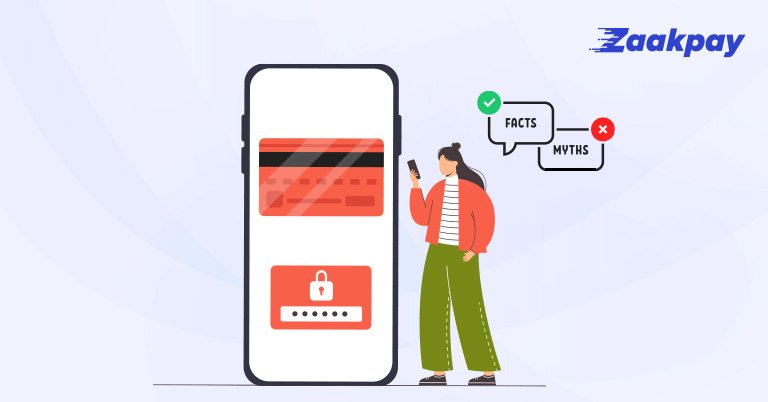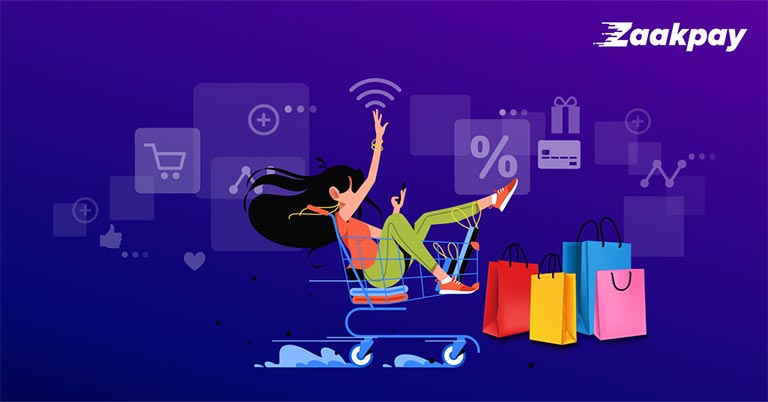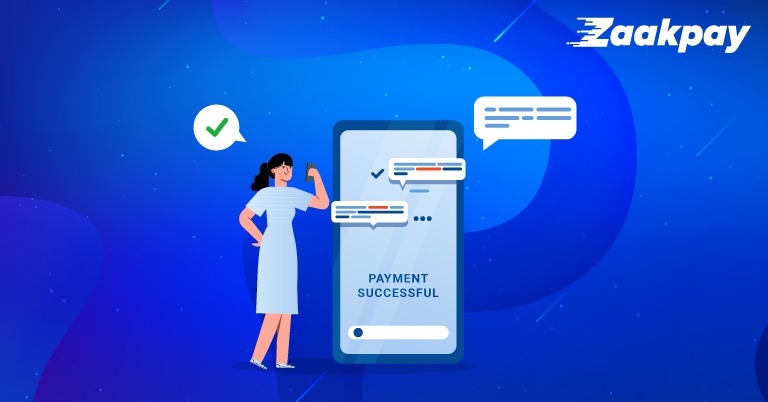Digital payments in India have seen an enormous increase since the last decade due to cheap internet and high mobile penetration. According to reports, the value of digital transactions will increase to $1 trillion by FY 2026. There are many modes of online payments like Banking Cards, Net Banking, UPI payment, and payment gateways like Zaakpay to assist the users. Though it has high flexibility and efficiency in online transactions, it also has a potential risk of a data leak. Online transactions involving confidential information like account details could be used by any hacker online. The Central bank and the Government have always looked for various ways to tackle these problems to enhance the safety of all transactions. One of the most useful ways to counter such an issue is Tokenization.
What is a Tokenization?
Tokenization is the process that converts details of the card into a specific token that is unique to a card and a merchant. This code hides the true details of the card, which makes it difficult to misuse the card. Since there has been a record number of data breaches, Tokenization is essential to counter such problems.
How does Tokenization operate?
Tokenization converts the 16-digits account number into a randomized token. The token is an alphanumeric ID that the payment gateway confirms by detokenizing the ID. It removes the relation between the online transaction and the sensitive data, which helps remove the breach of data. The use of a payment gateway like Zaakpay that uses Tokenization payment could be efficient and effective to ensure the security of online transactions.
What is the purpose of Tokenization?
While performing online payments, saved card details are prone to data breaches. Such breaches might lead to serious fraud, resulting in the customer losing money. More than 50000 cybercrime cases were reported in India in 2020, making data security a concern. It could tamper with the trust and belief of the customers performing online transactions daily. It is the reason why the Reserve Bank of India has introduced Tokenization to ensure maximum security in online transactions.
Today, Merchants get tokenization-supported gateways for reasonable charges. The payment gateway, Zaakpay, offers maximum security through Tokenization to its customers and merchants. It makes it one of the safest payment gateways in India. It ensures customer trust and faith in the businesses, thereby improving the goodwill of the merchants.
Interesting Facts about Tokenization
- Tokenization can be used to hide sensitive or non-sensitive data used in protected health information also, though it is popular in online payments.
- A single-use token is used for a single transaction, and a multi-use token is used for multiple transactions. A new token is created every time a transaction is made online in a single-use token. In multi-use tokens, the same token is generated every time a payment is made.
- Tokenization is an affordable mechanism that offers high-level security to the users. The payment gateway that supports Card Tokenization charges an affordable rate.
- Payment gateway becomes much more reliable using Tokenization since it masks information even from the applications involved.
- Tokenization has poised customer experience by providing online transactions via a secure payment gateway. It has eliminated the use of unnecessary details that were required before Tokenization. Increasing customer satisfaction is essential for all businesses since it can increase the interaction between merchants and customers.
Myths about Tokenization
Though Tokenization was initiated to enhance public trust in the payment system, it is still infused with various myths. These myths can hamper the process of Tokenization, and therefore, it’s essential to look into them cautiously.
- Tokenization is Expensive: This is the most common myth that is found when it comes to Tokenization. But in reverse, Tokenization is free to the users. It is very economical and affordable while paying through payment gateways compared to other secure payment charges. Several platforms of payment gateway charge only a small amount for Merchant Tokenization. By using Tokenization, merchants can save spendings on other protection systems.
- Tokenization is a Complex Process: This is another myth that gives the impression that Tokenization is a complicated process to handle. On the contrary, it is a simple process that requires the cardholder to initiate the process request on the app provided by the token requestor. This request will be directed to the card network, which will issue a token to the card.
- Tokenization and Encryption are the Same: Both are different concepts that have their characteristics. Tokenization substitutes confidential data into tokens that cannot be decrypted. Even if the attacker tries to penetrate the system and access tokens, nothing will be available. Encryption is a reversible mechanism that can be deciphered using an algorithm. It is breakable even though a more complex algorithm is highly challengeable. Encrypted data is more difficult to access, but it is not impossible to break into the information.
Conclusion
Recently, The Reserve Bank of India has given detailed guidelines for Tokenization. The guidelines were given to uphold public trust in the digital payment sector due to the increased risk of a data breach. It mandated all card networks to issue merchant-specific tokens against card details. It was set to begin from January 2022, later pushed to July 2022. It states no businesses or payment gateways shall be allowed to save their customers’ card data, including card number, CVV, and expiry date saved on servers for faster transactions. Now it is required to create a token and save it for future use or enter the details of every transaction. It has stipulated that businesses and payment processors will have to remove all information on saved cards before the end of December 2021. Saved cards were highly beneficial to the customers as it reduced their transaction time which was considered a convenient way of payment processing. An alternative has been given to the customers by allowing the saved cards as tokens. RBI regulating the Card Tokenization has increased a seamless user experience for customers while ensuring safe and secure transactions. It is a welcome step that has seen positive measures to ensure customers’ card data. The safety of millions of customers needs to be secured by the entities through which the businesses can have more transactions.
Follow Us on:

